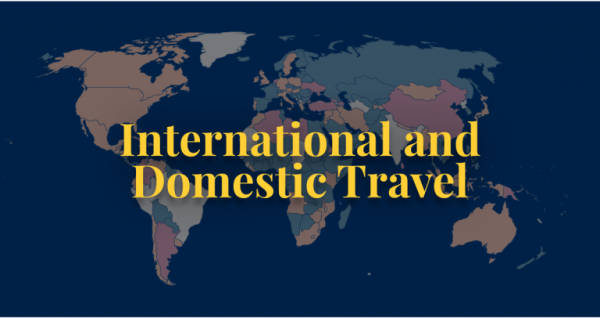

There are a lot of things that traveling may teach us that are impossible to learn at home. It first teaches you how to find new acquaintances. People that love to interact are found all throughout the world. When you visit new places and spend quality time with people, you get to create friends.
Additionally, it enhances our social abilities. After that, traveling is a great way to pick up new skills. Traveling to mountainous areas. In the same way, going to the beach can assist with your learning to surf or scuba dive.
Traveling necessitates significant expenditure to be incurred, and when it comes to costs, taxes must also be considered and hence it becomes very important to understand the implication of taxation on travelling expenses.
Applicability of income tax on Domestic and international travel: –
TCS collection by the authorized person
Section 206(IG) provides for the collection of tax by every person – Prices for overseas vacation packages will rise beginning in July 2023. For overseas remittances (save for education and medical purposes), the Liberalized Remittance Scheme (LRS) has a tax collection at source (TCS) rate ranging from 5% to 20%. As a result, TCS on remittances for booking overseas travel packages will rise from the current 5% to a whopping 20%. However, if you buy a foreign flight separately (rather than as part of a trip package), no TCS will be imposed. Because TCS would be applied to all overseas travel expenses other than the ticket, such as hotel, meals, and other travel costs abroad, the upfront cost of the holiday packages should rise.
If you purchase an overseas tour package from a travel agent after July 1, 2023, you will be forced to pay a 20% TCS. Even if you acquire foreign money for your international trip from an authorized dealer, you must pay TCS of 20%. “This idea will have an impact on Indians’ international travel, particularly those who book tour packages.” The budget for overseas travel will be increased by 15% immediately.
Applicability of GST on Domestic and international travel: –
A. GST on Domestic Travel: –
There are currently two different GST rates for tours and travels, depending on whether input tax credits (ITC) are available. The gross tour price is subject to 5% GST in the absence of an ITC option, and 18% GST in the case of an ITC. The total cost for both traveler’s and tour operators is impacted by these different rates.
There are three options available to tour operators under the Goods and Services Tax (GST) laws for operating and claiming input credits.
1. Without claiming ITC- Tour operators do not claim any input tax credits (ITC) and instead charge the customer 5% GST on the entire package.
2. with claiming ITC- The tour operator charges the client 18% GST for the entire package and submits an ITC claim. However, when claiming ITC, it’s crucial to take the place of supply rule into account.
3. Tour operator acts as Pure Agent: – As an agent, the tour operator sends the client an invoice with 18% GST on it. But the entity only acts as a middleman; the real costs of services such as lodging, meals, and transportation are listed individually on the invoice and are deducted from the client’s payment. The tour operator is required to keep accurate documentation of these costs.
Let’s understand the tax implication with a simple example.
| Particulars | Amount | % of Tax | Explanation |
| Tour package to Abroad | 20 lakhs | 20% TCS on 20lakhs | we must pay the travel agent an additional Rs. 4 lakhs (20% of the Rs 20 lakh). With applicable GST and other levies |
| 5% of GST (With claiming ITC | Tour operators do not claim any input tax credits (ITC) and instead charge the customer 5% GST on the entire package. (5% of 20Lakhs= 1 lakhs) Total travel cost= Rs.25 lakhs | ||
| 18% of GST (Without claiming ITC) | Tour operators claim input tax credits (ITC) and charge the customer 18% GST on the entire package. (18% OF 20lakhs=3.6lakh) Total cost for the tour and travel will be 27.6lakhs |
Conclusion: –
The increase in TCS to 20% for transactions beyond Rs 7 lakhs will undoubtedly irritate the middle class. However, it is critical to remember that TCS is adjustable in your tax reports and can be claimed when filing income tax returns.
We are open for comments and suggestions. The above article has been prepared as by Ms. Laxmi Malge ([email protected]) and reviewed by Mr. Suyash Tripathi ([email protected])